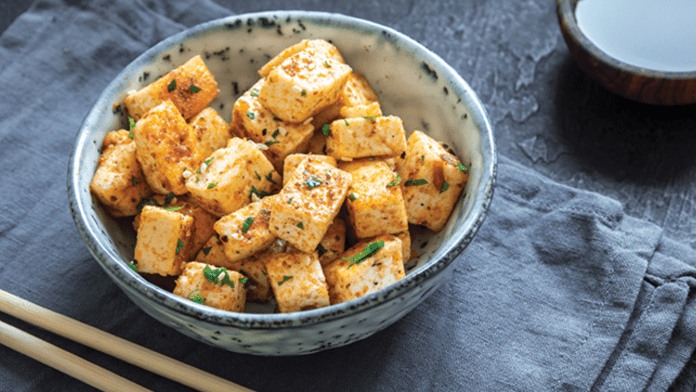In recent years, the popularity of veganism and plant-based diets has skyrocketed, with many individuals seeking to reduce their consumption of animal products. While there is an abundance of plant-based options available, finding satisfying meat alternatives can still be a challenge for many. However, by harnessing the power of certain ingredients and culinary techniques, it is possible to create mouthwatering vegan alternatives that even the most ardent meat lover will enjoy. In this article, we will explore ten versatile ingredients that can be transformed into delicious meat substitutes, providing you with the ultimate vegan hack.
1. Jackfruit:
Jackfruit, a tropical fruit native to South Asia, has gained significant attention in the vegan community for its uncanny ability to mimic the texture and flavor of pulled pork or shredded chicken when cooked. Its fibrous consistency makes it perfect for replicating pulled meat dishes. By marinating and seasoning jackfruit with a blend of spices and sauces, you can create an irresistible vegan version of your favorite barbecue or sandwich fillings.
2. Tempeh:
Originating from Indonesia, tempeh is a fermented soy product that has a nutty flavor and dense texture. It is an excellent source of protein and can be sliced, marinated, and grilled to create a savory and hearty meat alternative. Its versatility allows it to be used in a variety of dishes, such as stir-fries, sandwiches, and even as a bacon substitute.
3. Seitan:
Seitan, also known as wheat meat or vital wheat gluten, is a high-protein meat substitute made from gluten, the protein found in wheat. It has a chewy and meat-like texture, making it a popular choice for creating vegan versions of steaks, sausages, and deli slices. By combining seitan with spices, soy sauce, and nutritional yeast, you can achieve a rich and flavorful meat alternative.
4. Tofu:
Tofu, a soy-based product, is a staple in vegan and vegetarian cooking. With its mild taste and ability to absorb flavors, it can be transformed into a versatile meat substitute. By pressing and marinating tofu before cooking, you can achieve a firmer texture and enhance its taste. Crumbled tofu can mimic the texture of ground meat, while thick slabs can be grilled or fried to imitate steak or cutlets.
5. Lentils:
Lentils, legumes packed with protein and fiber, offer a fantastic base for creating meat alternatives. When cooked and combined with herbs, spices, and breadcrumbs, lentils can be shaped into meatballs, burgers, or even a meatloaf. They provide a hearty texture and earthy flavor, making them a satisfying choice for those craving traditional meat dishes.
6. Mushrooms:
Mushrooms, with their umami-rich flavor and meaty texture, are a go-to ingredient for creating plant-based meat alternatives. Portobello mushrooms can be marinated and grilled to resemble a juicy burger patty. Additionally, finely chopped mushrooms can be sautéed and seasoned to imitate ground meat in dishes like tacos, bolognese, or chili.
7. Cauliflower:
Cauliflower has gained popularity in recent years as a versatile vegetable that can be transformed into various dishes. When processed into small florets and seasoned, cauliflower can be breaded and baked to create a crispy and flavorful alternative to chicken nuggets or wings. Its neutral taste allows it to absorb different flavors and spices, making it an excellent canvas for creating meat-like dishes.
8. Chickpeas:
Chickpeas, commonly used in hummus and falafel, can also be utilized to make delicious vegan meat alternatives. When mashed or pureed, combined with spices, and formed into patties or nuggets, they can be baked or fried to achieve a crispy and protein-packed substitute. Chickpeas offer a mild and nutty flavor, making them adaptable to various cuisines.
9. Quinoa:
Quinoa, a protein-rich grain, can serve as an excellent base for vegan meat alternatives. When cooked and combined with vegetables, herbs, and spices, it can be shaped into patties or meatballs. Quinoa provides a satisfying texture and is a great option for those looking for gluten-free alternatives to meat substitutes.
10. Nuts and Seeds:
Nuts and seeds, such as almonds, walnuts, and sunflower seeds, can be ground or processed into a fine texture and used as a base for vegan meat alternatives. By combining them with other ingredients like mushrooms, lentils, or tofu, you can create flavorful and protein-packed patties or loaves. Nuts and seeds add a rich and satisfying taste while providing essential nutrients.
Final Thoughts:
Creating mouthwatering meat alternatives that appeal to vegans and non-vegans alike is an art that requires experimenting with different ingredients and cooking techniques. The ten ingredients discussed in this article – jackfruit, tempeh, seitan, tofu, lentils, mushrooms, cauliflower, chickpeas, quinoa, and nuts and seeds – offer a wide range of possibilities for crafting delicious plant-based alternatives to meat. By exploring these ingredients and adapting them to your favorite recipes, you can unlock a whole new world of vegan culinary delights. Whether you’re seeking to reduce your meat consumption or fully embrace a vegan lifestyle, these hacks will undoubtedly transform your meals into mouthwatering experiences that leave you satisfied and nourished.





